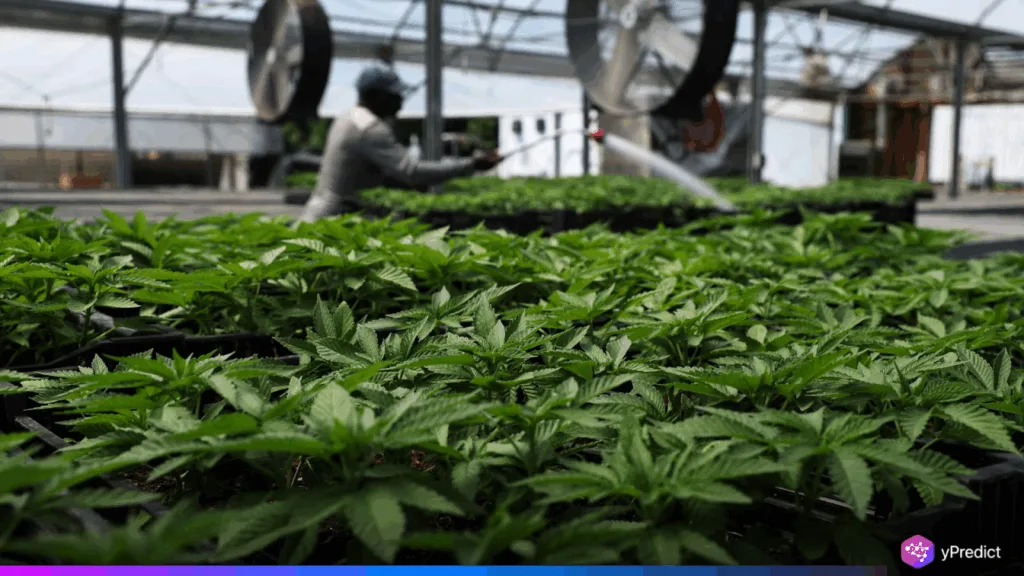
The new move by Donald Trump to reintroduce cannabis has rattled both the political and financial circles. The most important federal cannabis policy development in decades is the statement by him on August 11 that he would decide within the next several weeks on whether to shift marijuana off Schedule I and Schedule III. The news prompted an instant market response, and Village Farms International stock shot up 22% during pre-market trading the same day. The company did not achieve this accidentally; it had previously recorded good Q2 earnings, with revenue increasing 12 percent to $59.9 million and GAAP earnings per share rising to $0.24, which exceeded the expectations of analysts. Yet the share boom signals the overall investor enthusiasm regarding the rescheduling of cannabis as a key to the release of colossal value.
The 55-Year-Old Law Under Fire
In 1970, the Controlled Substances Act classified the substance cannabis with heroin and LSD as a Schedule I drug with a null status or no recognized medical use whatsoever, a designation that becomes ever more discordant with reality. Medical marijuana use is now legal in forty-seven states and is causing an ugly disparity in state practice versus federal law. The classification of cannabis as a drug with moderate to low potential for physical and psychological dependence would officially place it in the same category as ketamine and anabolic steroids, which also would be classified under Schedule III.
This reclassification would not be symbolic, but it would remove the Section 280E tax, meaning that cannabis businesses can no longer deduct typical business costs, such as rent and payroll. Today, this makes the cannabis firms pay 70-80% actual tax rates, which are much higher than the ones paid by common businesses. A Schedule III classification would permit standard business deductions, which may reduce effective rates down to 20-30 percent and liberate billions of dollars of capital to expand and innovate.
Market Transformation and Industry Impact
Tax relief is but the tip of the iceberg in terms of the economic consequences. The federal illegality issue has continued to keep banking institutions, credit card companies, and institutional investors away from or cautious of cannabis. Rescheduling would be a floodgate to conventional financing, NYSE listing, and mainstream investment participation. The current cannabis market can drive up to 30 billion in legal sales every year and 60 billion in illegal sales to be acquired by legalized businesses. Village Farms’ dramatic stock movement exemplifies investor confidence in this transition.
The strategic shift of the company, in which it abandons its core business (dead produce) to adopt the high-margin cannabis exports, would make it ideally placed to access a broader market. Similar changes may happen to other leading competitors, such as Curaleaf and Green Thumb Industries, as institutional obstacles fall. States having sufficiently developed infrastructure, such as California, Florida, and Illinois, are going to gain the most due to the opportunity to invest and engage in interstate trade.
The Path Forward
Nevertheless, there are huge obstacles even in the face of promises by Trump. The issue of legal appeals and legal enforcement opposition is still confusing the timeline. Successful rescheduling notwithstanding, complete cannabis normalization is congressional within the interstate commerce and can be subject to FDA regulation of health claims. The openness of Trump, however, as a candidate, marks the first presidential support for reforming cannabis. His administration has become an active reviewer of agency recommendations, with several sources affirming that a process is in place. The combination of political wind, market speed, and acceptance at the state level indicates that indeed 2025 will mark the end of one of the most limiting periods of cannabis prohibition.







